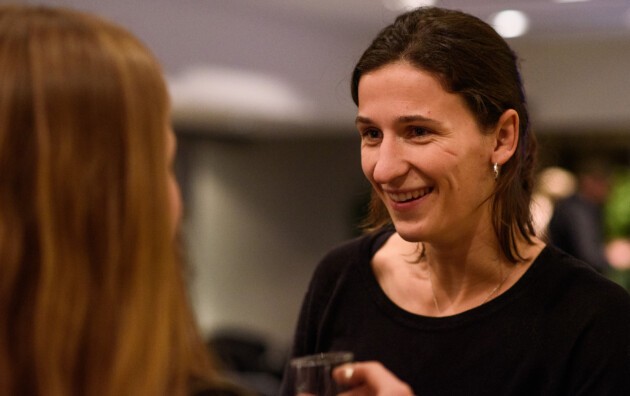
From CEO to Chief Emergency Officer – 6 insights from Thomas De Wulf
“I had forgotten the harsher sides of the last crisis. You have to dare to cut knots, make hard decisions.”
When the financial crisis toppled the markets in 2008, Thomas De Wulf was the brand new Managing Director of Ormit talent Belgium. Now the ink on his business cards hasn’t even dried yet or the new CEO of the Ormit talent Group is up against the corona crisis.
“I feel like a soccer player giving an interview while he is still playing the match,” he says at the start of the interview. “We feel the economy is taking a hit, but the worst is yet to come. In 2008, the credit crisis was a shock to the financial system. Banks all cut back on external employees. May that be what we offer, in particular to the banking sector. Essentially, the situation is the same now: companies are focusing on liquidity and reducing their costs, which creates a huge cascading effect.” According to Thomas, the trigger is different in both crises, but the dynamics are the same. Six insights from a man with experience.
#1
Focus on innovation
A decade ago, Ormit talent got through the crisis by accelerating new business models. Today, Thomas is choosing the same route. “We were already incubating various ideas. Covid-19 makes us accelerate. Acting on opportunities is always important, but in times of crisis it becomes a good survival strategy. Now is not only the time to cut costs, it’s the time to be entrepreneurial.”
#2
Be present, even if it’s from afar
Ormit talent has been operating completely remote since the first day of lockdown, but Thomas believes that as CEO he should always be there, distance or no distance. “Being there, really being present with your full attention, is important. I call colleagues daily and Ormit talents weekly. At such times you have to answer questions, give attention to concerns and, to a certain extent, share your own insecurities. As CEO you have to keep the peace. Not by glossing over or being pessimistic, but by being open.”
#3
Combine the soft and hard sides
“Things are moving at fast in our business. During a crisis fewer orders come in resulting in more talent sitting on the bench. At times like that you have to cut costs and outline a vision for the future. Combining the soft and hard sides is the solution. Ultimately, running a business like this is not just about making a profit, it’s also about your role in society. In 2008 our Ormit talents were twiddling their thumbs. At the time, we put them to work at charities. Today we are again encouraging them to make a social commitment: make mouth masks, write cards to the elderly, help students with their thesis, donate blood, and so on. You have to cut corners when the going gets tough, but you also have to encourage that sense of initiative. That’s not being soft, that’s being human.”
#4
Work out scenarios
Thomas took the time over the past two months – in close consultation with all stakeholders – to work out several scenarios that would allow him to move faster when shifts occur. “Imagine a quadrant. On one axis you arrange phenomena from temporary to permanent. On the other you arrange them according to whether they need a lot or little time to implement. The first box contains the things that can be set up quickly, but will have a lasting effect. Teleworking, for example. In the next box you place the solutions that are quick and efficient, but temporary in nature. For us, that’s online training. Convenient, but as soon as we can, we prefer to do them live. So you fill in each box and you have four possible paths you can prepare for.”
“Ultimately, running a business is not just about making a profit; it’s also about your role in society”
#5
Set yourself up for a marathon, not a sprint
“You feel the economy is taking a hit, but the worst is yet to come,” says Thomas. “This is not a sprint, but a marathon. And your scenarios have to be geared to that. You also need some kind of mental fitness, as well as the support of everyone around you, both employees and shareholders. If you know that you’re all pulling on the same rope, it’s easier to forgive yourself when you have a dip. This quarantine was an adrenaline rush, now it comes down to getting enough rest to ride it out.”
#6
Zoom is not just for meetings
“I miss the coffee machine. There’s very little chatter, these days. Working from home means that all of our work time is suddenly used efficiently. That’s positive because it’s progress, but at the same time you are ‘always on’. That bit of relaxation at the coffee machine helps to turn the switch off. That’s why we had lunch with the team this week via Zoom. Not to talk about anything specific, but just to catch up. We also recently organized a quiz via Zoom, with all the trainees attending. You really need to keep that space free if you want everyone to get through the difficult moments.”
The lessons from the previous crisis come in handy for Thomas to keep calm this time around. “The previous crisis makes me react more calmly now. Nonetheless, I’ve grown some gray hairs and remembered that you have to listen to what’s going on if you want to get through it together.”





